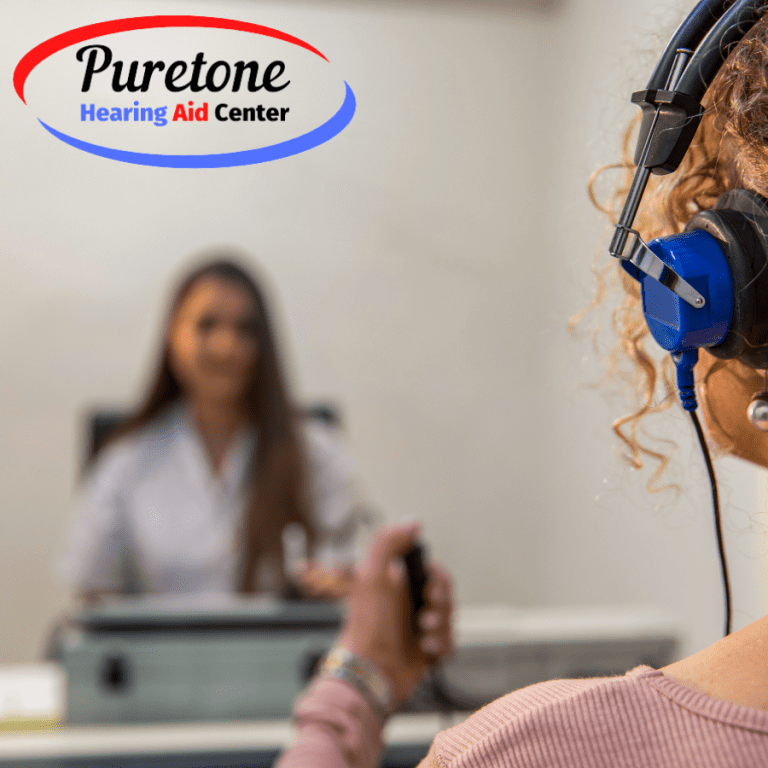You probably realize how important it is to have an annual check up, or to see the dentist every year. You may not realize you also need to have your hearing checked regularly. If you are over 50, or have hearing loss symptoms this is especially true for you.
Getting Your Hearing Tested
You may think getting a hearing test is for someone who has issues with their hearing, however there are quite a few scenarios where you may develop hearing problems without even realizing it.
Changes in the Inner Ear
There are small, not visible to the human eye fibers called cilia in the cochlea of the inner ear. This tiny organ contains fluid that maintains the balance of the body and controls how sound waves impact the auditory nerves. On top of each cilia strand is a stereocilia. These stereocilia move and vibrate when sound waves enter the ear, they then pass along these signals to the auditory nerve, which then sends to the brain for interpretation – What are you hearing? A drum, a train? The brain interprets the signal from the inner ear.
Aging causes the cilia and the stereocilia to shrink and potentially die. As they shrink you have fewer fibers to move and vibrate when the sounds enter your ear. In the beginning, you may notice small changes in sound levels and clarity, but after some time the changes become more noticeable.
Getting an annual hearing test as these changes begin to occur will allow you to establish a baseline and can be monitored for more extreme changes in hearing.
Hearing Loss as a Result to Noise Pollution
Do you live in a noisy neighborhood? Have you worked at an industrial job with lots of noise? Maybe you have worked in loud musical environments. Frequent exposure to long-term noise above a certain decibel level can cause hearing loss, this type of hearing loss can compound in old age. If you are experiencing normal age related hearing loss, but have been exposed to loud noise environments the hearing loss can be exacerbated.
If you have worked or lived in these types of noisy environments it’s important to have your hearing tested, especially as you age.
Injuries to the Head and Ears
Have you suffered a concussion, multiple concussions, or other blows to the head? Been in a car accident or other situation that caused head injury? These types of injuries may cause hearing loss. The hearing loss is a result of damage to the ears or auditory nerves. Hearing loss from injuries is out of your control.
If your cochlea is the source of injury it’s possible to have your hearing restored with an implant. Auditory injuries don’t always fully heal, escalating the natural hearing loss you would have experienced later in life. As a result, you may have to wear a hearing aid or other device to hear better. A doctor can repair your auditory damage only up to a certain point, and then you may need to rely on supportive and assistive devices to hear.
If you have experienced concussions, or other head injuries it’s important to have an annual hearing exam. In the case of head trauma and hearing your may not experience any loss or you may experience a rapid change in hearing some time after your injury. Delayed hearing loss happens more often than you think with these types of injuries.
What if my hearing test finds hearing loss?
If you do find from your test that you are experiencing hearing loss, don’t worry. There are many avenues to getting your hearing back where you want it. Hearing devices are available in multiple types and styles.
Technology has advanced to this point – there are tiny hearing aids that fit inside the ear canal. These devices operate through a tiny “antenna” that lets you to retrieve the hearing aid with a fingernail when you take it out at night. These hearing devices use Bluetooth and wireless technology for convenience.
There are other options, such as exterior ear hearing devices, in ear canal aids, and behind-the-ear models. The closer the hearing aids sit to your eardrum, the smaller and more compact the receivers and transmitters become.
Diagnosed Deaf or Really Hard of Hearing? You have Options.
If you cannot hear and decipher most sounds, you may be legally deaf. It’s important to be tested professionally to determine this designation. You could be disabled due to you lack of hearing.
The most important thing is to get you hearing again. A hearing care specialist can still help you if you can’t hear well or hear at all to diagnose your hearing and determine with you what avenue to pursue in terms of hearing devices that best fit your lifestyle and needs
If you are deaf or hard of hearing it’s important to have your hearing screened regularly. The parts of your ear responsible for motion, balance and more need to be monitored in order to stay healthy and safe and determine any further deterioration as time progresses.



